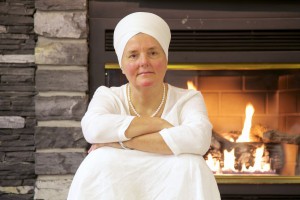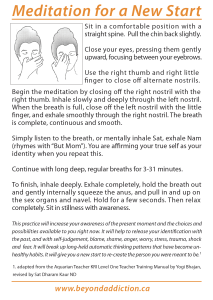What is Addiction?
 Perhaps, like me, you’ve indulged in some unhealthy habits over the holidays that were or still are difficult to stop. Does this mean you are addicted? My nemesis was the shortbread cookies. Thankfully they are all gone. What was yours? When we are addicted, we surrender a piece of our autonomy to a substance or behaviour that then has power over our feelings, thoughts and actions, with negative consequences.
Perhaps, like me, you’ve indulged in some unhealthy habits over the holidays that were or still are difficult to stop. Does this mean you are addicted? My nemesis was the shortbread cookies. Thankfully they are all gone. What was yours? When we are addicted, we surrender a piece of our autonomy to a substance or behaviour that then has power over our feelings, thoughts and actions, with negative consequences.
Addiction is the strong physical, emotional and/or psychological dependence on a substance or behavior (such as alcohol, drugs, sugar, coffee, gambling, sexual obsession, shopping, overwork, exercise, the internet, Facebook, video games or television) that has progressed beyond voluntary control. All addictions arise from uncontrolled thought patterns and unmet needs. Addiction can be a chronic and progressive condition, with genetic, neurobiological, hormonal, nutritional, psychosocial, environmental and spiritual factors contributing to its development and manifestation. Over time the addicted person takes increasing doses of addictive substances or spends more time involved in the addictive activity to maintain the same effect. Often unpleasant symptoms (withdrawal) appear when the addictive substance or habit is stopped and disappear when it is reinstated. At its extreme, an addiction may become an obsession to the exclusion of everything else in one’s life.
We have a finite number of both energy units and hours in each day of our lives. When the addiction consumes too many of those energy units, less is available for: making proper meals; exercise; sleep; positive social interaction; intimate relationships; spending quality time with children and family members; developing a career, hobby or intellectual pursuits; earning an income; creativity; developing one’s spirituality; community service, relaxation and play. Our ultimate goal of union with the Cosmos is foiled, our life and our wholeness pay the price, and our friends, family and society may suffer and miss out on the unique contributions we might otherwise make.
Consider your own addictive behaviours. What parts of your life are they replacing? Are you using something to soothe your pain? What hole are you attempting to fill? What are you potentially missing out on? Are you over-focused on one area of your life so much so that other areas are suffering, such as self-care, your relationships, your career, your creativity or your spirituality? Be honest with yourself and acknowledge the areas of your wholeness that are trampled because of addiction.
In his wonderful book, Memoirs of an Addicted Brain, neuroscientist Marc Lewis describes addiction like this: “Addiction is a neural mistake, a distortion, an attempted shortcut to get more of what you need by condensing “what you need” into a single, monolithic symbol. The drug (or other substance) stands for a cluster of needs: in my case, needs for warmth, safety, freedom, and self-sufficiency. Then it becomes too valuable, and you cannot live without it. But one thing cannot be all things. And that’s why, in the long run, addictions do such a lousy job of fulfilling needs – if they fulfill them at all. At the same time, many addictions, and certainly addictions to drugs, dash real opportunities to fulfill those needs elsewhere. That’s why addictions are such a poor bargain.” [i]
Causes of Addiction
We seek and use addictive substances and behaviours to blunt emotional pain – which may manifest as loneliness, alienation, vulnerability, rejection, fear, abandonment, neglect, insecurity, feeling unsafe, emptiness, depression, anxiety, post-traumatic stress and/or attention deficit hyperactivity disorder. In his book, In the Realm of Hungry Ghosts, Gabor Maté writes: “the very same brain centres that interpret and “feel” physical pain also become activated during the experience of emotional rejection: on brain scans they “light up” in response to social ostracism just as they would when triggered by physically harmful stimuli.”[ii]
Addiction exists on a continuum. Many of us have been abused to some degree, either physically, sexually, psychologically and/or emotionally, and consciously or unconsciously look for something to dull those unpleasant memories or feelings, so that we can feel OK, if even for a moment. Dr. Maté states: “The chronic condition of severe substance addiction is caused, in most cases, by the distorting effects of early childhood abuse or stress on the developing brain, often in the context of multigenerational trauma and social dislocation.”
Why Do We Use?
We may use substances to release inhibitions, overcome inadequacies, relax in social situations, improve concentration or enhance our performance. We may adopt addictive behaviours when we lack inner strength to face reality, and choose a substance that temporarily makes us feel strong. Young people may use drugs to bond with each other, or to experience a “high”, perhaps because they have not been provided with opportunities to bond in more conscious and meaningful ways, or to challenge and discover themselves through sacred ritual or rites of passage. Others initially choose drugs to get attention, to rebel against parents or society, or as an outlet for anger. We use addictive substances because we are bored, and have not found a mission or purpose to give our energy to. We become addicted as a replacement for the love and nurturing we did not receive and do not know how to get elsewhere. We are prone to addiction when we feel a lack of support, lack inner strength and cannot cope on our own. With our drug of choice, whether it be alcohol, coffee, cocaine, crystal meth, or gaming, we can feel smarter, more creative, confident, talkative and socially adept. We come to depend on the drug to experience ourselves in a new way, and soon can’t imagine living without it. When it is taken away, we may feel deprived of a piece of ourselves, or as though we have lost a friend. We look to the addiction to make us whole, but it cannot.
Most of us have developed addictive behaviours that we recognize as being unhealthy, whether it is an addiction to sugar or coffee; drugs or alcohol; television or the internet; a relationship or work; or to sex or gambling. The degree to which we harm ourselves physically or emotionally, or disrupt our social and economic well-being, determines the seriousness of our addiction.
Western society today is an “addictive society” – we collectively look for substances or activities from the outside to fill the emptiness on the inside, or to deal with stress, and many of these substances and activities are socially accepted, promoted and even valued, such as coffee to start the day, alcohol to end the day and excessive work. We are addicted to consumerism, to the concept of “more is better”, to the burning of fossil fuels, to our egoic identity, to a way of thinking. Some of us may be genetically more susceptible to addiction.
Underlying all other causes of addiction is one primary cause – separation and disconnection from the authentic Self or soul. This spiritual bankruptcy fuels all addictions.
How to Prevent or Stop Addiction
There is no simple solution to reverse our societal susceptibility to addiction when its origins can be traced back to trauma in previous generations (as in the First Nations population, or in the descendants of holocaust survivors), to a mother’s stress in pregnancy, early childhood abuse, sexual abuse and trauma, inadequate parenting or social alienation. If we were to address the above causes of addiction, some of the individual, societal and family-oriented changes that could reduce or prevent addictive behaviour would include:
1) Nourish a Loving, Supportive Family Life
- Support women during pregnancy in helping them to have a healthy diet, mental calmness and relaxation, low stress
- Nourish strong, secure, loving attachment bonds in early infancy. Include baby massage, lots of physical skin-to-skin contact, eye gazing, singing, give attention to the child.
- Help families early on deal with sexual, physical and emotional abuse to prevent its recurrence
- Foster loving, caring environments for our children in home and school environments
- Train parents in the importance and ways in which they can give healthy attention to their children
- Train parents and children in healthy, respectful forms of communication
- Provide children with clear values, modelled and reflected in stories and by their elders
- Provide children with healthy role models – inspire them to achieve their potential
- Provide more support and direction to youth and young adults in recognizing and developing their talents, finding their calling, guiding their future
2) Address the Needs of Youth
- Provide pre-teens and teens with value-based education, attention, encouragement and opportunities to develop skills they enjoy
- Provide teens with meaningful rites of passage that involve healthy risk-taking (rock-climbing, snowboarding etc)
- Educate teens about the damaging effects of substance abuse
- Instigate yoga, meditation, relaxation and exercise programs in schools and after school programs
- Ensure adequate nutrition for all children, particularly those from lower income families
- Educate parents to meet the nutritional needs of their children to balance blood sugar, hormones and neurotransmitters
- Help recognize and prevent sexual, physical and emotional abuse of children

3) Nourish One’s Inner Life
- Create a relationship with one’s inner Self or soul; help foster this relationship in children
- Achieve positive altered states of consciousness through yoga, meditation, breathing exercises, dance, singing, chanting, drumming, poetry, exercise, laughter, story-telling, drama, reading sacred texts
- Support positive states of consciousness through a healthy diet, regular detoxification, spiritual practices, selfless service
- Be mindful of the breath and develop a natural long deep breath
- Live honestly and speak truthfully, to reduce inner conflict
- Use one’s free time in meaningful hobbies, exercise, creativity, time in nature, community service, or focused on contributing something to the greater good
4) Express Oneself
- Recognize inner anger and find healthy outlets to discharge it, such as exercise, self-expression or supporting a cause. Seek help in managing anger. Practice breathing exercises to reduce anger.
- Use music, dance, art, writing, other creative expression and relaxed group activities to express one’s feelings
- Develop effective communication skills to express oneself truthfully
- Provide effective counselors, therapists and techniques for individuals to process trauma, body memories, subconscious material, fear, anger, panic, anxiety, depression in a safe, supportive environment
- Cultivate an attitude of acceptance, gratitude and self-compassion
5) Nourish the Body
- Sustain the nervous system and glandular system with lifestyle practices, a healthy diet and yoga and meditation to develop inner strength
- Balance blood sugar levels through dietary practices and supplementation
- Become involved in group sports or an exercise program/gym – one hour a day of aerobic exercise
- Learn how to boost one’s inner vitality with proper rest and relaxation, specific foods, regular meals and wholesome snacks, nutritional supplementation, breathing practices and exercise, rather than relying on an outside stimulant
- Apply an annual detoxification regimen
- Schedule relaxation breaks throughout the day to better adapt to stress. This might look like three 11 minute breaks during which we practice a breathing exercise, a guided relaxation, a mindfulness technique or have a nap
- Sleep 8 hours each night
- Schedule regular vacations
6) Build and Participate in Healthy Community
- Bond with one another through techniques and activities that elevate our consciousness, improve fitness and bring us together. This may include shared meals, fitness club membership, church, walking groups, team sports, meditation and yoga groups, healthy rituals, volunteerism, listening to music or inspiring speakers and teachers
- Develop more resources in society, schools and in the work environment where people can come for support
- Develop meaningful activities to serve, nourish and improve the well-being of others in one’s community
- Develop opportunities for spiritual practice in a group setting at all ages
Any person or recovery model that seeks to prevent or overcome addiction would do well to utilize and integrate the above guidelines.
Dr. Gabor Maté summarizes what is needed in a recovery program:
“To solve the addiction problem a person needs psychological and spiritual support, support with job skills, support with all kinds of emotional counselling, a really holistic, integrated, long-term program, where he isn’t demeaned, where he isn’t judged, where he isn’t treated like a stupid little kid that needs to be controlled. There needs to be a holistic, loving, respectful, supportive, long-term, patient, forgiving program. A comprehensive, holistic, humane, spiritually-informed … emotionally-supportive, compassionate addiction program.”[iii]
Try this simple breathing practice described below, the Meditation for a New Start, each day for 40 days, to help shift your addictive tendencies.
 Sat Dharam Kaur ND is a naturopathic doctor, Kundalini Yoga instructor, author and permaculture orchardist living in Owen Sound, Ontario. She is the creator of the Beyond Addiction program, which has been taught internationally and online since 2009. The Beyond Addiction program utilizes Kundalini Yoga, meditation and breathing practices along with dietary and lifestyle changes to achieve a healthy and fulfilling life. It integrates the teachings of Yogi Bhajan, Dr. Gabor Maté and leading addiction experts in a 16 module program. For upcoming courses, see https://beyondaddiction.ca/events/training-programs/. The next online training begins Jan 12, 2016. Details are here.
Sat Dharam Kaur ND is a naturopathic doctor, Kundalini Yoga instructor, author and permaculture orchardist living in Owen Sound, Ontario. She is the creator of the Beyond Addiction program, which has been taught internationally and online since 2009. The Beyond Addiction program utilizes Kundalini Yoga, meditation and breathing practices along with dietary and lifestyle changes to achieve a healthy and fulfilling life. It integrates the teachings of Yogi Bhajan, Dr. Gabor Maté and leading addiction experts in a 16 module program. For upcoming courses, see https://beyondaddiction.ca/events/training-programs/. The next online training begins Jan 12, 2016. Details are here.

[i] Doubleday, Canada. 2015 PhD. Memoirs of an Addicted Brain. Doubleday Canada. 2011 p. 305
[ii] Maté, Gabor. In the Realm of Hungry Ghosts. Alfred A. Knopf, Toronto. p. 34
[iii] Maté, Gabor. Interview with Tommy Rosen on Recovery 2.0, June 2015..

Sat Dharam , will you personally be teaching the course in Owen Sound April 16?
Sat Nam Sat Akal – yes I will be present for all of it and teaching most of it. blessings
Sat Dharam